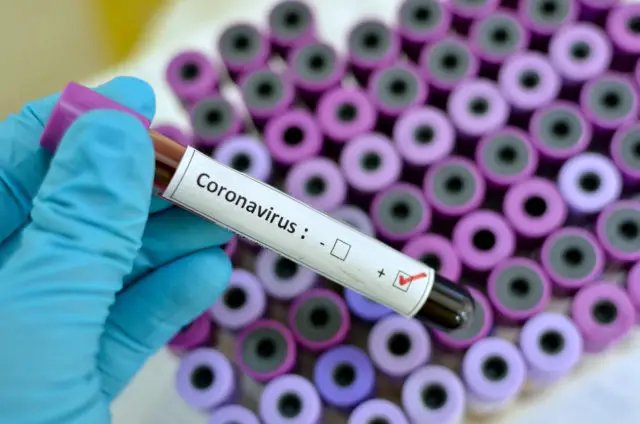
“The Promised War”, Part 5
They entered the city around ten in the morning but the atmosphere they perceived was puzzling. The streets were semi-deserted. The few people they ran into eluded them and there were those who ran in any direction to avoid talking to them.
“What is it?” Eva asked.
“I don’t know,” Nicasio admitted, “but they run away like seeing the devil.”
“Something is happening,” she said, “something very serious. I have never seen San José so sad.”
The answers began to appear very soon. Under the eaves of a house, a man was moaning in a horrible way. Intermittently, he held his belly and head with his hands and his eyes wandered in all directions without stopping at anything.
The house was hermetically sealed, including the windows, which the owners had closed with planks and nails. Nicasio immediately recognized the signs of the plague. He stopped the wagon and approached, calculating that the man could hear him.
“Hey, friend, what’s wrong?” He asked.
He didn’t answer, didn’t even seem to listen.
“Can I help you?”
There was no answer. The man’s eyes kept spinning in their sockets, almost colorless, for a couple of minutes. His body was shaking uncontrollably. Suddenly it emitted a serious noise, like a great burp; his trunk leaped forward as if spring-loaded, and his eyelids dropped heavily, covering his terrifying blind gaze. Then his body relaxed and faded onto the sidewalk.
“What’s wrong?” Eva asked.
“I think he is dead,” Nicasio replied.
The death scenes kept repeating as they approached the center of town. The bodies of men, children, women, the elderly, lay everywhere. Crying and prayer came out of many houses, and very few doors remained open.
In the room of one of these, a small group of women dressed in black observed a coffin. Everything was gloomy, San José was an unrecognizable city. Eva began to cry and Nicasio found no words or spirit to comfort her.
On his journey from Liberia, he had had the opportunity to see the terrifying desolation that cholera is leaving in its wake and he well knew that there were plenty of reasons to cry.
They continued walking with inertia, not knowing what to do or where to go, perhaps only to find that the desolation was total and comprehensive.
Being about two blocks from the cathedral, Nicasio heard his name being called. He turned around and was able to recognize Captain Fernández, whom he had met at Rivas, accompanied by a couple of soldiers. He seemed glad to meet him.
“Man, Nicasio, you are alive,” he said in a tone of celebration. Didn’t that filth give you in, or what?”
“Barely, I almost died,” Nicasio replied, “but they say that bad weed doesn’t die…”
“Ah, it’s true, I also survived because of that. This is all awful isn’t it?” Said the captain pointing round with his open hand.
“Yes, from what I’ve seen in this little while I’ve been hear,” Nicasio said.
“I returned four days ago and went straight to the ranch, back in Mata Redonda. So I hadn’t realized what was going on. I have very few neighbors there and they were all fine, as the plague has not arrived there.”
“I never believed that it would reach San José, surely we brought it.”
“I sure do,” Nicasio replied.
“I see you’re riding a cart,” Fernández pointed out. “Is it yours?”
Well … yes, I just bought it. I’m going to start a business”
“She’s pretty,” said the captain, looking towards the young lady, taking off his cap and scratching an incipient bald spot.
“But I think that the business of yours is going to have to wait a bit. First, because there is no work to do here, everything that is commercial is dead. Second, because we need your services for something else.”
“What thing?” Nicasio reacted, bewildered.
“Raise the bodies and take them to the cemetery,” said Fernández.
“There are so many that the arms available are not enough. You will have already seen the bodies on the street. Almost in every house in the city there is one or several dead every day. Many who have carts refuse to help because they are afraid of becoming infected. And to some extent they are right.”
“And why do I have to? If I get sick again, I am no longer saved. No, man. He who gave once did not give more. Look at me, I’m fine.”
“I don’t know,” Nicasio hesitated. “My wife is waiting for a baby, all I want is to take her home”…
“Look,” argued the captain, “we brought this damn disease here. And when I say we, I speak of the army, of those who went to fight in Nicaragua. The least we can do now is help a little. The more corpses there are without burial there will be more infected people. If we don’t do something, the plague will end everyone. Do it for them, for your wife and for the son to come.”
Nicasio felt an oppression in the soul. After all he had been through, when he already believed himself to be the victor of death and master of his destiny, a new obstacle was erected before him. How could he refuse to give such a imperious collaboration?
How to argue a refusal if, in any case, given the country’s situation, he would have no choice but to sit back and wait for better times?
And, on the other hand, Captain Fernández was right: it was not just about helping others, but protecting his own, because sooner or later they would also be in danger if something was not done to contain the plague.
There were no options.
THE END.
If you want to read all parts of this history go HERE

